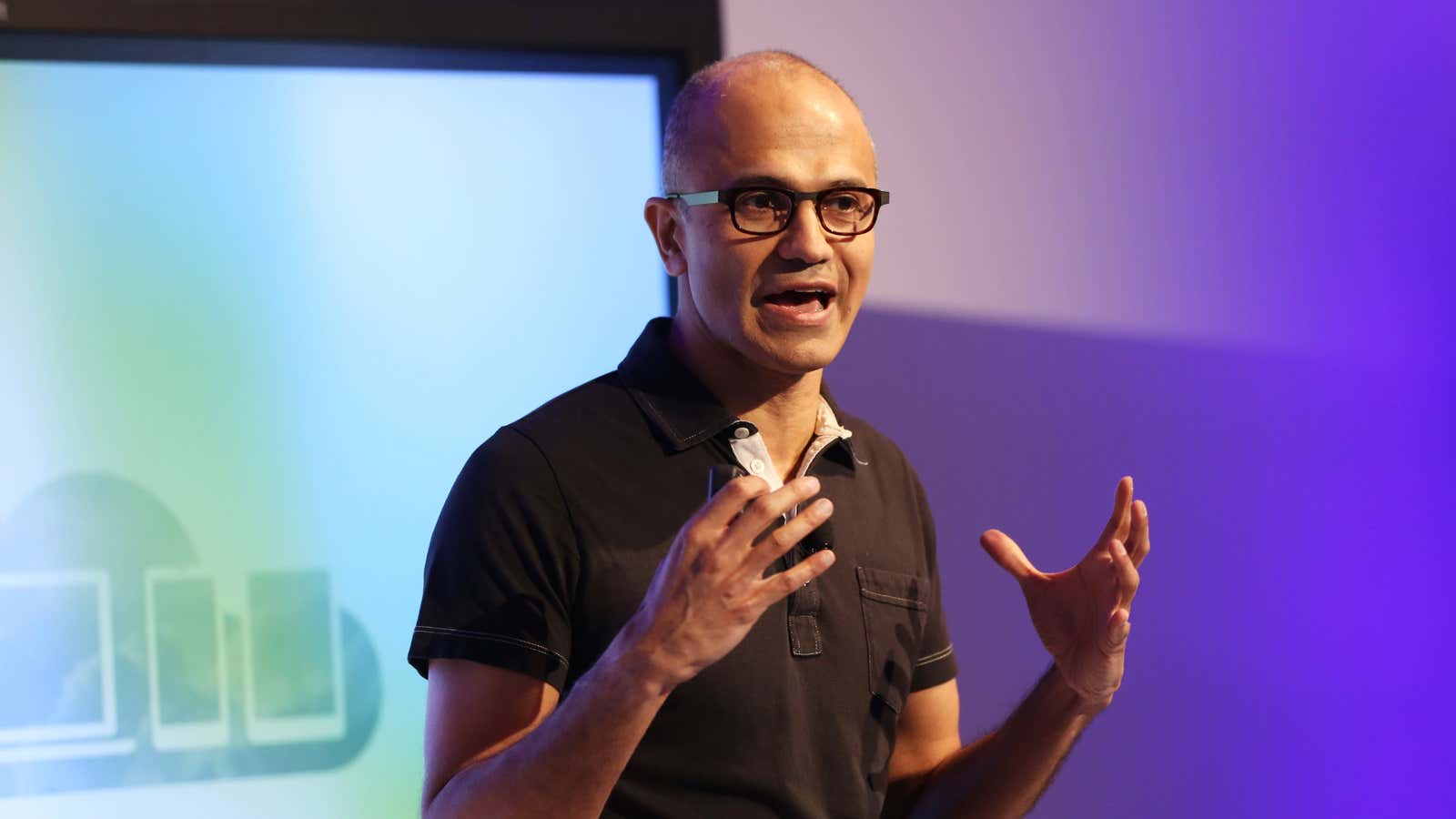Fifty-two days after taking over Microsoft, CEO Satya Nadella appeared at his first press event today—the official launch of Microsoft Office for the iPad. But more important than a product launch, which was as advertised, is what he said in his introduction.
Nadella emphasized, again, Microsoft’s strategy to avoid getting caught out by another seismic shift in computing the way it missed out on the move to mobile. In the past, he described that strategy as an emphasis on “devices and services.” Today he was clearer: it’s about “ubiquitous computing and ambient intelligence.” Strip away the jargon, and what Nadella is saying is that it doesn’t matter what device you use, whether it’s a desktop PC, a phone or a face computer. So long as it’s connected to the internet, Microsoft will be there at the other end.
To wit: “The world in the next five years and 10 years is not going to be defined by the form factor we know and love today, but by the variety of form factors that will come to be over the coming years,” he said, adding, that current trends pointed to the emergence of “many new form factors at a pretty rapid pace and that will make computing ubiquitous.” (There’s that word again. Expect to hear it a lot more in the coming weeks and months.)
Some of the things Nadella mentioned seem obvious: “The second thing is that pretty much everything we do is going to be digitized.” But that’s just a roundabout way of getting to his main point, which is that ”the most important trend of all, which we are at the very beginning phases [of], is to reason over all that digitized information.” In other words, Microsoft wants to be the company you go to when you have lots of data and you need a place to put it and smart people to figure out how to make sense of it.
This is not new. Microsoft has been doing this with its cloud platform and servers for years. Other companies, notably Google and Amazon, do it too. But Microsoft has for the past half decade been running between strategies trying to do everything at once. Under Nadella, Microsoft will focus more clearly on what it does best, which is serving businesses and white-collar workers.
